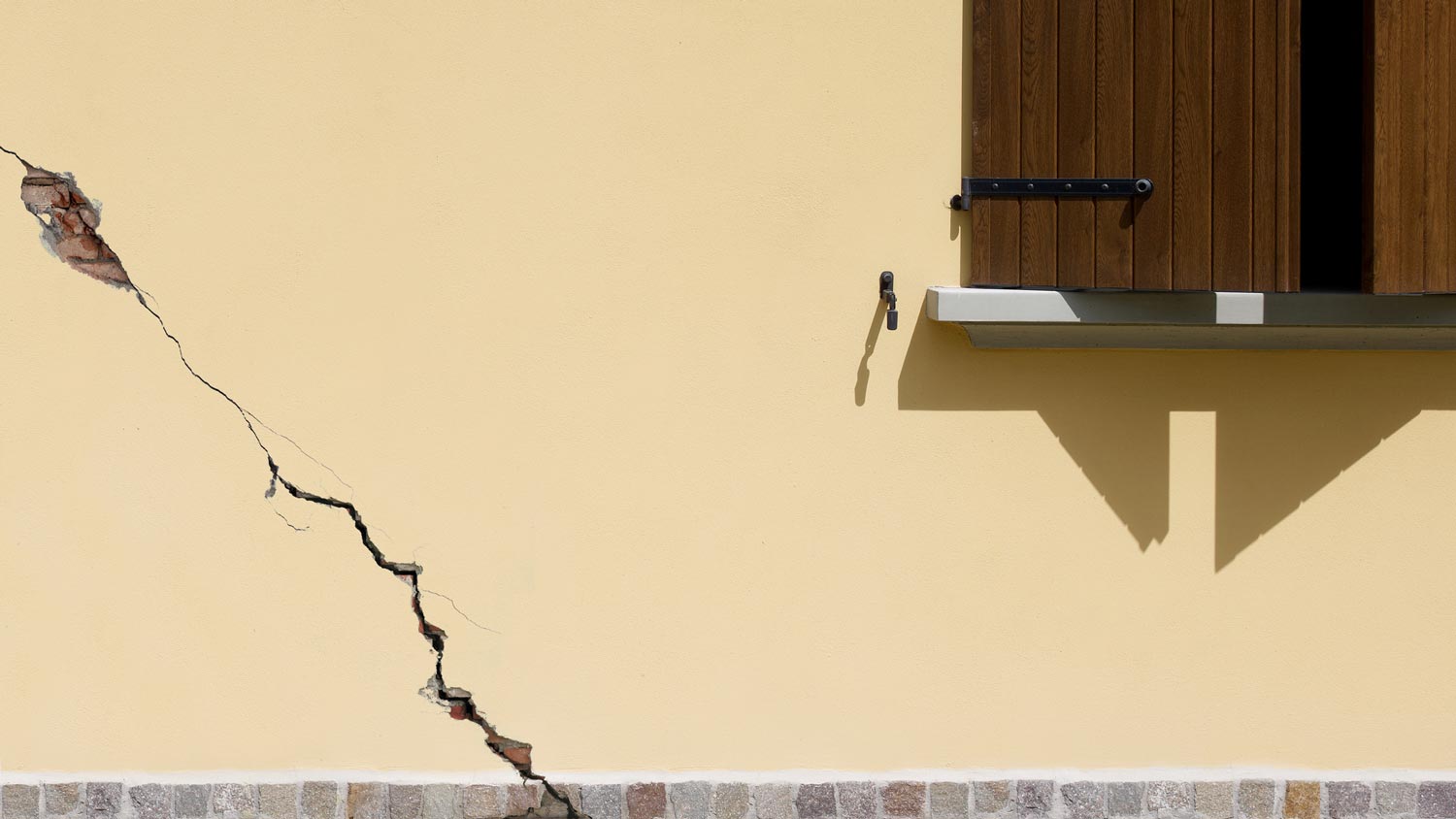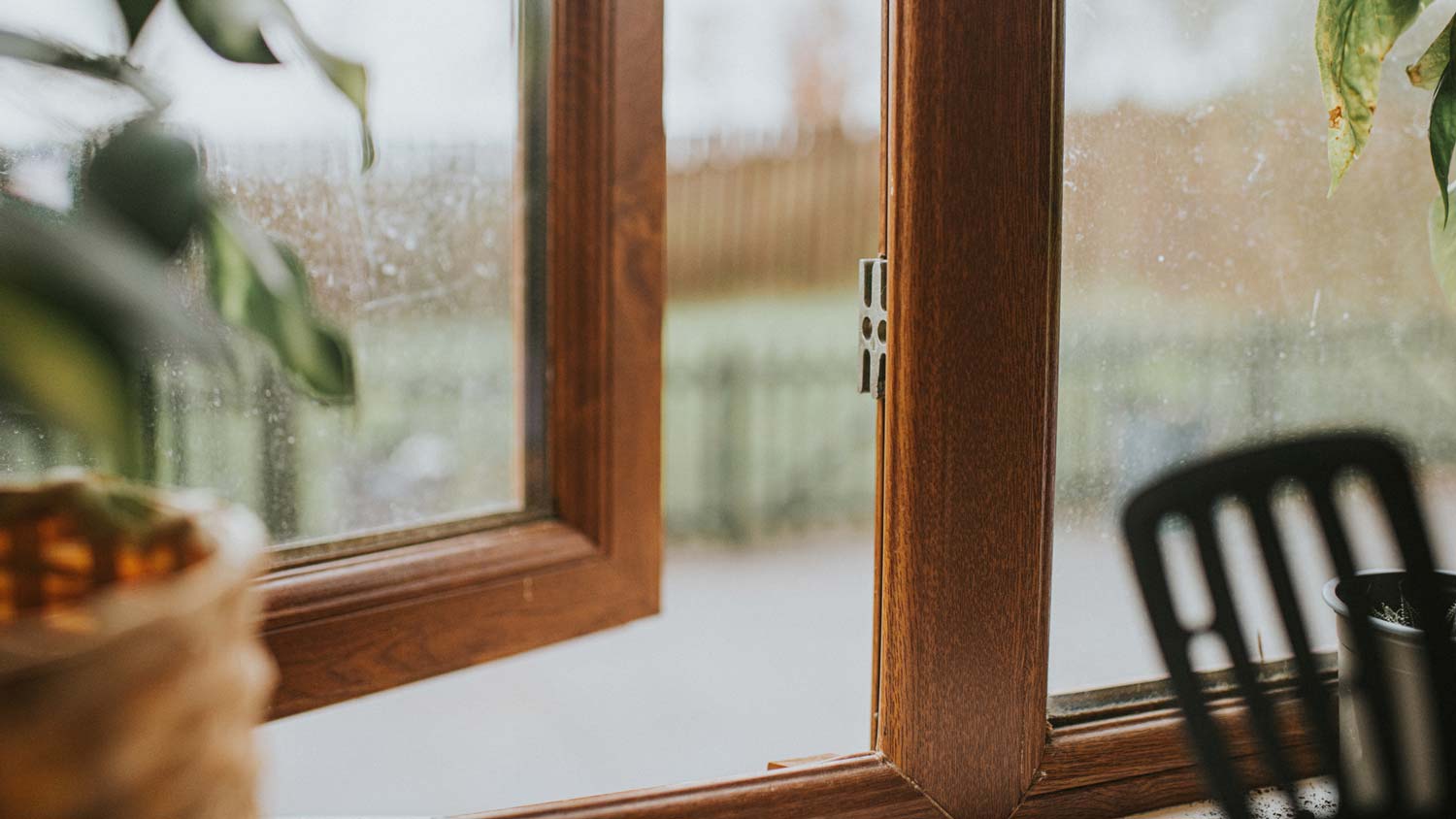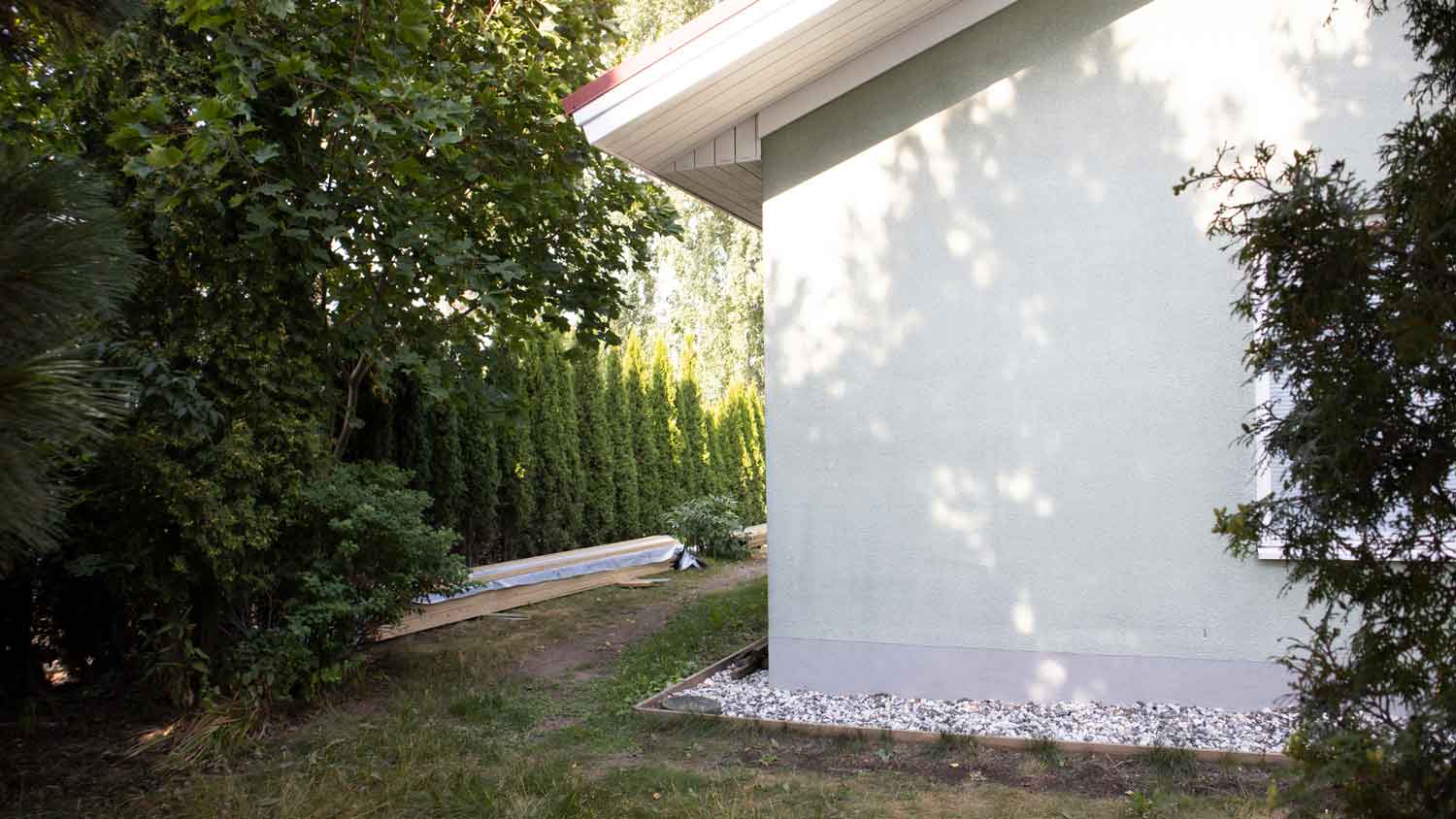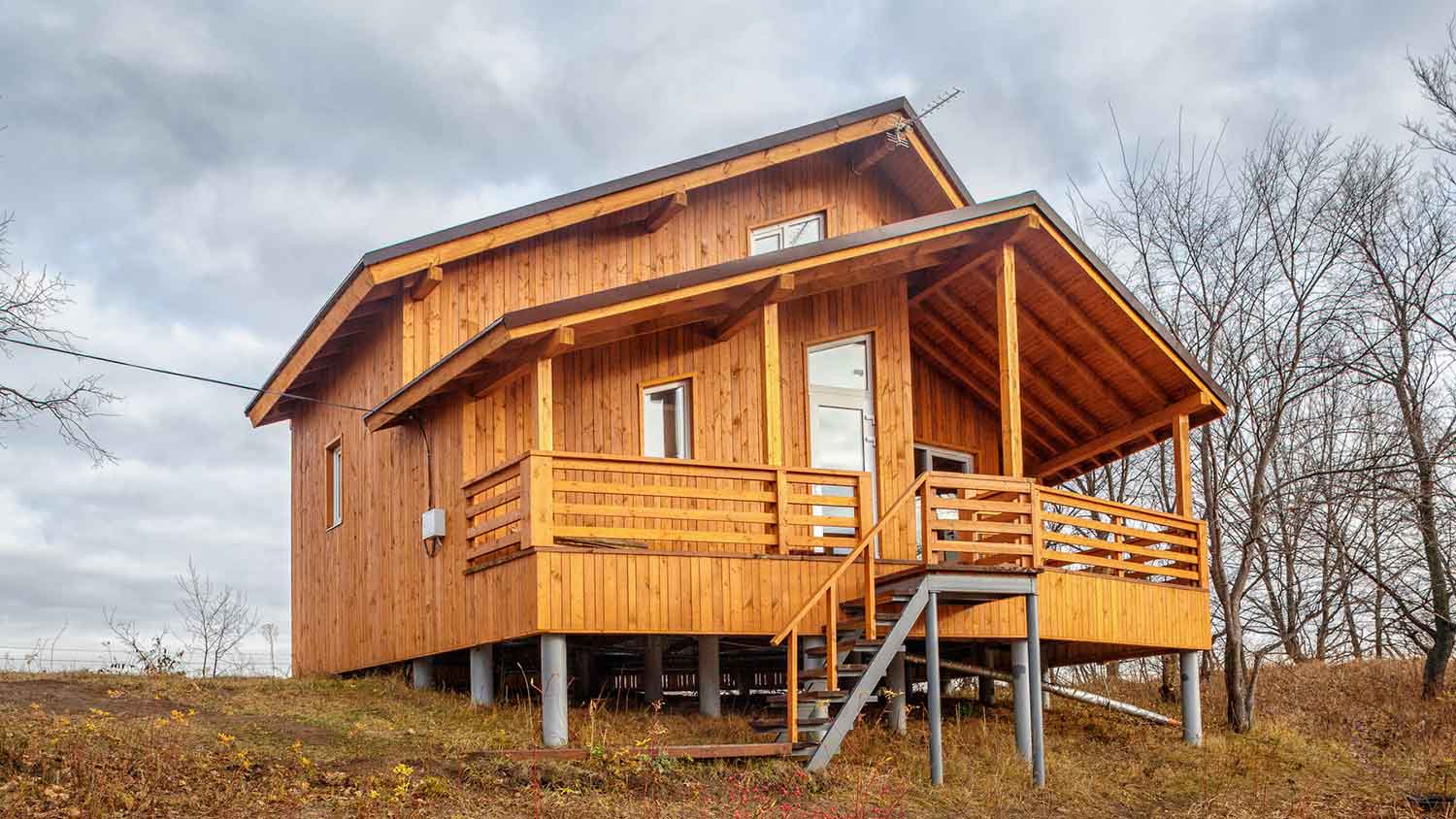11 Warning Signs of Foundation Issues
Identifying foundation problems early is the best way to avoid structural issues


Signs of foundation problems can occur all throughout your home.
Issues with moisture are common with many types of foundation damage.
Addressing issues early can help avoid severe damage.
Preventing damage is the best practice to avoid structural issues.
Foundation problems can come with all sorts of warning signs, and the earlier you identify them and have them fixed, the more likely you are to reduce repair costs and avoid serious damage to the rest of your house. In this guide, we’ll explain the 11 most common signs of foundation issues, what causes them, and what to do next.
"Look for signs like cracks in the walls, floors, or foundation itself, doors and windows that stick or don’t close properly, and uneven floors. If you see any of these, it’s time for a professional inspection. While you can do a basic visual inspection yourself, significant findings should always be checked by a professional to assess the extent of any issues."
— Tim O'Shea - The Build Pros
Why Are Foundation Issues Dangerous?
Foundation issues can be dangerous to your home both directly and indirectly. For example, the cause of foundation cracks can stem from anything as harmless as the natural home settling process to extreme pressure changes in the surrounding soil. In the latter case, large cracks can cause the walls, footing, and support beams to break, leading to structural damage to your home.
Indirectly, foundation problems also mean trouble for the rest of your home. Uneven floors, doors that won't close, and cracks in your walls are all potential consequences of foundation issues. Cracks and openings, for example, can welcome moisture and extreme temperatures. An uneven foundation can even lead to structural instability in your walls, floors, chimney, and roof.
Additionally, foundation problems in your crawl space or basement can lead to water damage, mold, and pest problems. Ignoring necessary foundation repairs can even affect the value of your home over time.
Signs of Foundation Problems
Foundation problems may not be as straightforward as basement cracks and bulging walls. Once you reach and exceed your foundation's life span, you may begin noticing some of the following foundation problems throughout your home.
1. Doors Stick or Don't Latch
Interior doors that stick or don't close properly are telltale foundation damage signs, as the frame around doors relies on the foundation for even support. If you've got French doors, they won't meet properly in the middle and may not close or latch properly.
Keep in mind that interior doors often swell in the summer due to the heat and humidity. If your doors continue to stick year-round or it’s obvious that the door or frame has shifted, then a foundation problem is more likely the cause.
2. Large Cracks on Foundation Walls

Hairline cracks on foundation walls are very common and are generally nothing to be overly concerned about. They're often just indicators that your property has undergone a period of normal, minor settling.
However, you should worry about foundation cracks if they meet any of the following criteria:
They are a quarter-inch wide or larger.
They zigzag.
They are horizontal.
They continue to widen or lengthen.
They let water in.
Large cracks are one of the most common signs of foundation issues, including excessive water pressure on your foundation or shifting soil. If the cracks persist, water or insects can work their way inside and significantly increase the cost of repairing your foundation. Plus, worsening cracks—particularly horizontal foundation cracks—can lead to more and more severe structural damage that can potentially put you and your family at risk.
3. Cracking on Interior Walls
Much like foundation wall cracks, drywall naturally cracks over time, especially if temperature fluctuations are extreme. These are especially common in large wall openings if you have an open floor plan.
However, drywall can also crack if the attached framing shifts because of foundation damage. Drywall cracks can be signs of bigger problems if:
They form at the corners of windows and doors.
They continue to lengthen or widen after your home has settled.
They appear suddenly after many years of settlement.
4. Cracks in Floor Tiles or Wood Floors
Floor tiles crack because of uneven pressure caused by a shifting foundation. While a single floor tile can crack for all kinds of reasons (like dropping a pan on it), multiple tiles cracking suggests you should hire a foundation repair company near you to check your foundation. If you have wood floors, look for gaps between planks that are growing larger over time or sinking sections of the floor.
5. Windows Sticking and Pulling Away

Like doors, when there are foundation problems, windows can start to stick when you try to open or close them. Or they may not latch correctly as the increased pressure from the stressed walls causes them to shift or bulge slightly. You may also notice the window frames starting to pull away from the surrounding brick.
6. Uneven or Sinking Structure
Take a look at your property from the outside, at a distance. If there is any sinkage or settling around the base of your home, you may be able to see that the house or the roofline is no longer straight and even. Usually, if the sinking foundation is already fairly severe, you'll easily spot that one side of your property is lower than the other. If you have a brick facade, look for step cracks that travel up to the roofline.
7. Bouncing Floors
There are numerous causes of bouncy or spongy floors, but if you notice this in a new property or you suddenly find your home develops bouncy floors, particularly if accompanied by popping or creaking, it's time to hire a structural engineer. They'll be able to assess whether the bouncing floors are due to foundation problems or something as small as needing an extra brace beneath the floorboards.
8. Nails Popping Out of Drywall
Nails popping out of your drywall might not seem like a big deal, and in fact, it probably isn't if it's only the occasional nail. However, if it happens regularly and in different areas of your home, it could be a sign that the foundation of your home is shifting or undergoing increased stress and pressure.
9. Walls Pulling Away or Bowing

If you look at the outside of your house and any wall appears to be bowing outwards, it’s a strong indicator you have foundation problems. Similarly, inside your home, if you notice kitchen cabinets or countertops separating from the walls, the walls may be shifting along with the foundation.
10. Issues With Drainage
Water from runoff is one of the most likely causes of foundation damage, so assessing your property for drainage issues is a great way to identify problems early, possibly before they lead to other signs of foundation issues.
Assess your property after it rains to see how the ground drains water. If you notice pooling, you likely have expansive clay soil and problems with drainage, which can cause major issues for your home’s foundation.
11. Other Signs of Moisture
Since moisture in your underhome area can mean foundation damage, so too can the results of increased moisture. If you notice any of the following in your under-home area, it could indicate a foundation leak or damage leading to water intrusion:
Mold growth
Musty odors
Efflorescence (white, flaky substance on the concrete)
Pest infestation
Air that feels heavy
Moisture accumulation under your home can also affect the air quality in your living area. If you notice that indoor temperatures feel unusually hot in the summer or cold in the winter, humidity from a leaking foundation could be the problem.
Preventing Foundation Problems From Occurring
Identifying foundation problems is a great way to keep your repair costs down and minimize structural damage to your home, but even better is preventing the problems from occurring in the first place. There are a few things you can do to help avoid foundation issues in your home and prevent them from doing severe damage.
Grade Soil Away From Your Home
One of the simplest ways to avoid foundation problems is to grade the soil away from your foundation. Even a slope of about 6 inches over 10 feet should be enough to help wick runoff away from your foundation naturally. This can help reduce the risk of water intrusion as well as the risk of hydrostatic pressure on the concrete from expanding soil.
Don’t Plant Shrubs Near Your Foundation
Roots from bushes, shrubs, and trees hold water around them in the soil. If roots run close to your foundation, you run an increased risk of expanding soil, and runoff will have more time to wick through your concrete or leak through foundation cracks. Keep trees at least 10 feet away from your home and smaller shrubs at least 5 feet.
Invest in a Gutter System
Installing gutters, leaders, and gutter extenders is an affordable way to reroute excess runoff from your roof away from your foundation. If the system moves the water to a safe distance away from the concrete, a gutter system alone can sometimes be enough to avoid problems.
Install a Drainage System
Consider installing a French drain or similar foundation drainage system if you know your area gets a lot of rain or snow or if you have expansive clay soil on your property. Drainage systems move runoff away from the concrete and can often prevent water and moisture issues entirely, especially when you couple them with a gutter system.
Address Issues Early
Finally, inspect your foundation once every six months or so from the outside and inside, if possible, to check for any signs of foundation issues. If foundation problems aren’t fixed, they tend to worsen over time, so locating problems early and hiring a professional to carry out a repair is a great way to avoid severe damage.
When to Call a Pro for Foundation Issues
Your foundation supports your entire home and is one of the most important components to repair properly, so we always recommend calling in a professional to carry out foundation repairs. There are a few exceptions to this, though.
If you have hairline cracks in your foundation that haven’t grown longer or wider over time, you can seal them yourself with a foundation crack sealer or epoxy to prevent foundation leaks. Any cracks over 1/8 inch or are uneven from one side to the other demand attention and repair from an expert.
It’s also possible to DIY some preventive measures, like installing gutter extenders and grading soil away from your home. DIYers with some experience can handle installing exterior drainage systems, too, provided they take care to install them at the proper depth and distance from the foundation.
How Much Does It Cost to Repair or Replace a Foundation?
Address potential foundation issues by hiring a foundation repair specialist. Not only can they identify the source of the issue, but they will help you determine foundation repair and replacement costs as well.
Major repairs will cost an average of $5,000, though fixing small cracks can cost as little as $250. Foundation replacement is a large undertaking, costing between $20,000 and $100,000 on average. A large portion of this price will go toward raising your home and removing portions of the old foundation, however.
Keep in mind that the price will fluctuate depending on your type of foundation, where you live, and who you hire to fix your foundation.
Frequently Asked Questions
You can buy a home with foundation issues, but understanding the extent of the problem and what solution you need is critical. If you learn that a home you’re trying to buy has a foundation problem, it’s not necessarily a deal breaker, but you should have a professional assess the issue to see how severe it is and know when to walk away from a foundation problem. Foundation issues can necessitate simple and affordable solutions or complex work that costs thousands.
Yes, a severe foundation problem can eventually cause a house to collapse—though it can take several years to get to that point. Also, if foundation damage is severe enough that it causes a collapse, it’s likely that only a portion of the home will experience damage. Regardless, no one should live in a home with a safety risk as serious as a full or partial collapse. It’s always best to address a foundation problem as soon as possible before it threatens the structural integrity of your home.
Foundation repairs typically require a building permit, depending on the state and local jurisdiction. Make sure your contractor follows all building codes, and a local building inspector will review all work to ensure that it is up to code. Not following local building codes can prevent the sale of your home and potentially put your home at an even greater risk of damage if the work isn’t done properly. You can call your local municipal office to confirm that your contractor has filed the necessary permits.





- Your Guide to Dealing With Foundation Drain Issues
- What a Foundation Inspection Is and How to Check Yours
- 10 Reasons You Really Shouldn't Delay Foundation Repairs
- 6 Sinking Foundation Signs and What to Do Next
- 8 Common Causes of Foundation Cracks
- 11 Foundation Maintenance Tips to Keep Your Home Standing Strong
- How to Know When to Walk Away From Foundation Issues
- 8 Tips to Avoid Foundation Repairs
- 7 Tips for Protecting Your Home’s Foundation
- Can Standing Water Damage Your Foundation?











